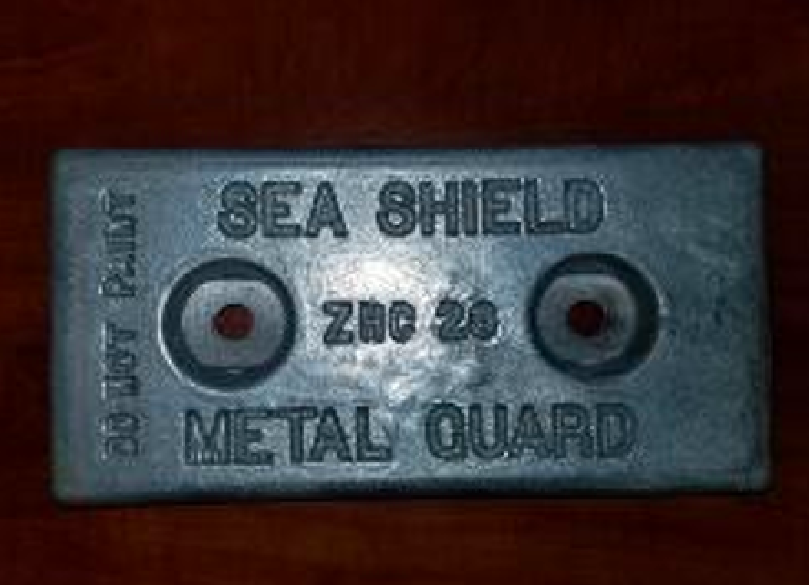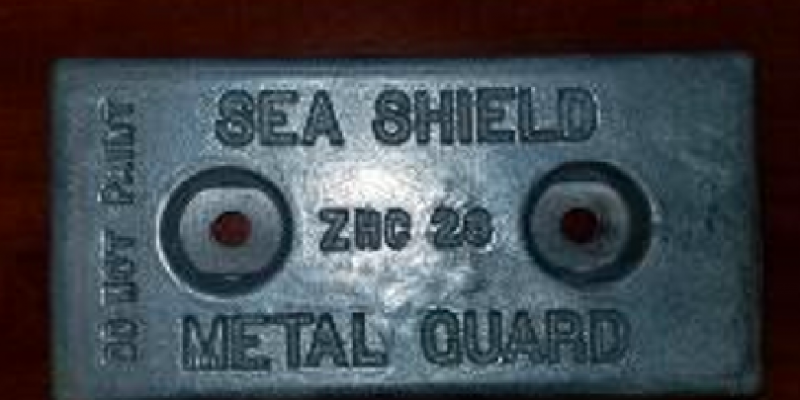
When to Use Sacrificial Anodes
Sacrificial anodes are a common way to mitigate the corrosion of metal. They are used widely in water treatment environments as well as marine applications, for everything ranging from small watercraft to cargo vessels.
Why Metal Corrodes
When two metals are immersed in an electrolyte such as water, it generates a small electrical charge like a battery. As the current flows between the two metals, it causes corrosion to the lesser noble or more reactive metal.
What’s corrosion? In this case, the lesser noble metals contributes electrons to create the current. When this happens, that metal breaks down, oxidizes or in common language rusts.
The Role of the Sacrificial Anode
This localized corrosion can be mitigated by installing a sacrificial anode. A sacrificial anode is composed of metal that is less noble , more reactive and is located lower on the galvanic chart. The sacrificial anode will be consumed in place of the metal it is protecting, which is why it is referred to as a “sacrificial” anode.
In other words, This means a sacrificial anode saves the metal we intend to protect from having to contribute electrons to the current; this saves the system metal from corrosion.
Metals Used for Sacrificial Anodes
The main metals used as sacrificial anodes are magnesium and zinc. These will corrode preferentially before iron. Magnesium has the most negative electro potential of the three galvanic series and is most suitable for areas where the electrolyte (water) conductivity is higher.

When Are Sacrificial Anodes Effective?
Sacrificial anodes are very effective in a localized way, but they won’t prevent corrosion on the whole system. They will protect system metals only near where they are installed. For this reason, their use is somewhat limited. Since they function by being consumed, it’s important to replace them when they are consumed .
Sacrificial anodes can be especially beneficial when there is localized corrosion on end bells due to low flow or chillers sitting in standby mode. Sacrificial anodes on condenser end bells can help protect them from corroding.
When Are Corrosion Inhibitors and Chemical Control Effective?
While sacrificial anodes can be virtually a magic bullet in some contexts, like protecting a propeller on a boat, they have limited use in protecting water treatment systems from corrosion. One primary reason for this is that water treatment systems depend on large surface area, and sacrificial anodes work in a very localized fashion.
Corrosion inhibitors and chemical control are the best strategy for controlling corrosion in cooling systems. We recommend using a properly applied chemical treatment program, proper shutdown and when needed consider the application of industrial protective coating on condenser end bells and tube sheets.
Please reach out to Chemtex if you’d like to know more about preventing corrosion in your water treatment system. Our technicians are happy to help you troubleshoot your corrosion issues and get your system back into the best possible balance.



/NQA-ISO-9001-Logo-ANAB.jpg)